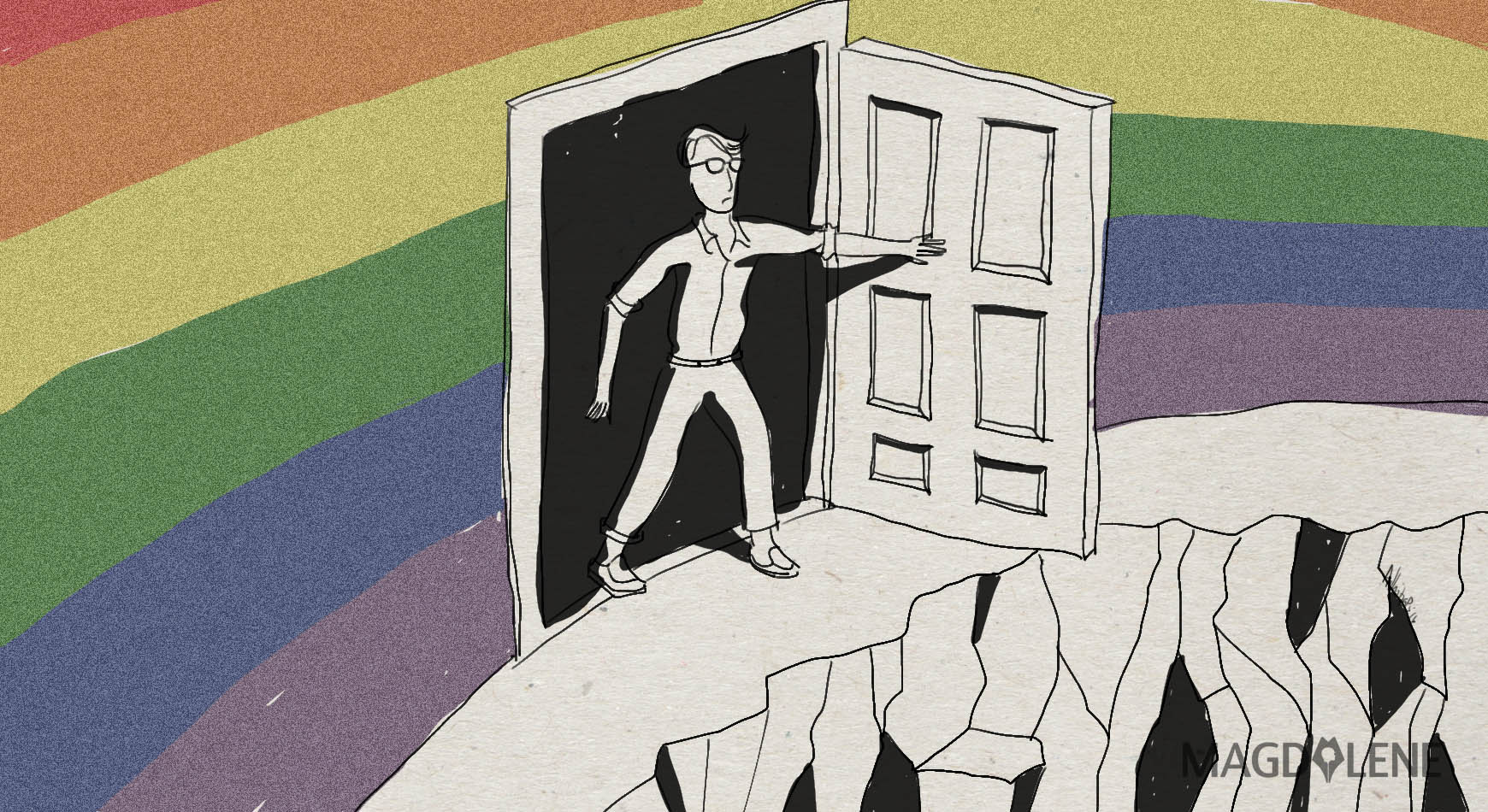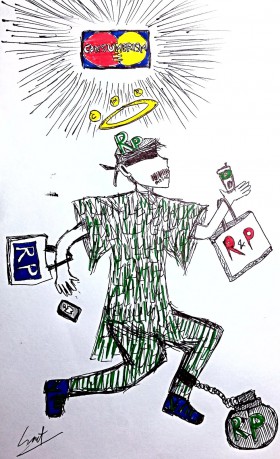I want to live in a world where Zoe Leonard’s poem materializes into our reality. To quote one of her lines, “I want a person with AIDS for president.”
I want my children to be able to marry whomever they want or deliberately decide that they do not want to marry and no one shall shove the “truth” to their throats. I want my sisters to be able to roam freely upon this earth without worrying that rapists and flashers might linger around the corner. I want everyone to be safe and comfortable in their own bodies. I want that we could live without devoting ourselves to the monarch and the oligarch. I want many things, but a heteronormative future is not among them.
As I wrote this article, I found myself in perils. I told myself again and again: who the fuck needs an article about heteronormative futurity? For a lot of us, the very structure of heteronormativity always-already exists upon us. It has thrown many of us under the shadow of normalcy. It has cut our ties with our families. It has put us on the stage of flagellation, jeered and taunted by our spectators. It has dragged us from our home and forced us to live in another body that is not ours. It has beaten us. It has killed us.
Thus, a discussion on heteronormative futurity doesn’t really make sense. It goes without saying that we live in a heteronormative time, surrounded by heteronormative people, and regulated by a heteronormative state. Heteronormativity is, indeed, the reality, and it has lived among us longer than it needs to be.
While it is clear that our present is heteronormative, I believe that we still have our chances. The future, as contingent as it would be, is a space wherein we can materialize our imagination into reality. Therefore, for me, I want my imagination to be liberated. I want to be able to imagine that, one day, everything is going to be okay. Everything is going to be just.
I want to be able to know that, one day, people would not give a damn about the color of our skins, the shape of our organs, the desire that lurks within our mind, and so forth. At one point in my life, I believed that it might happen. Yet, reality struck us like a train wreck. 2016 happened. The moral panic toward the LGBTQ+ community happened. AILA and Gerakan Indonesia Beradab happened.
Once again, we are thrown under the punitive structure that turned everyone’s eyes to our bodies. Once again, we are trapped under the microscopic gaze that renders everything we do visible in the eyes of others. Once again, I realized that our ability to imagine a queer future shall be forever colonized.
Then, a specter comes again upon us: the Family Resilience Bill. At first glance of my reading on the Bill, many things appeared in front of my eyes. Before I read the bill, by no means that I would categorize surrogate mothers, sperm donors, as well as gay and lesbian under the same category. Yet, the Bill says otherwise. All these people would potentially be perceived as socially deviant in the eye of the state. They would be subjected to rehabilitation, fine payment, and incarceration.
Now, I would like to ask you to imagine what would happen in our future. Let us sit for a while and imagine that, one day, we could actually win. Imagine that one day (and this day perhaps come in a hundred years, or more), our fight and struggle and resistance meet its ends.
Imagine that one day, everyone could legally and safely build a relationship with another person of the same gender. Nevertheless, there would not be such a thing as children for those joyous people in the future. Their very possibility to bear and raise children would be thwarted by the law that penalizes assisted reproductive technology.
Then again, I might be too fatalistic in approaching this Bill. Perhaps, the reality is not as complex as I thought it would be. Perhaps, the penalization of surrogacy and sperm/ovum donation are based on the Indonesian Council of Ulema’s decrees that deem surrogacy and sperm donation as haram. Perhaps, we are not dealing with the drawback of queer futurity, but rather with the solidification of a religious state.
One is not better than the other, nonetheless. Regardless of the intention, I believe that the threat toward queer futurity would be an unintended consequence of the solidification of a religious/punitive governance. No matter the intention of our government, we have no future but a nightmarish, heteronormative one.
We still have time, of course, to prevent the nightmare evolves. The Family Resilience Bill is still a Bill. It is not a Law yet. The time is now, and we got no choice but to fight back.
P.S.: I would like to emphasize to the readers that I do not argue nor imply that the aim of queer struggle in Indonesia is to achieve the right to marry, as it often accused to be that way by the conservative groups (and this is the fatalist side of me that keep suggesting myself not to write this article precisely for this potential wrong inference). For those of us who fight in the issue of the LGBTQ+ community, we know that our aim is to achieve a living condition that is free from discrimination, persecution, and violence. Therefore, this article aims to situate the notion of future in a heteronormative framework, precisely to highlight that our very ability to imagine things is limited and restricted by the very structure of heteronormativity.







Comments